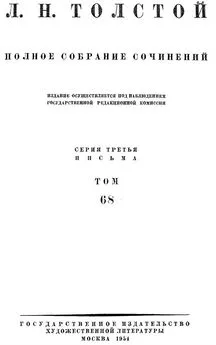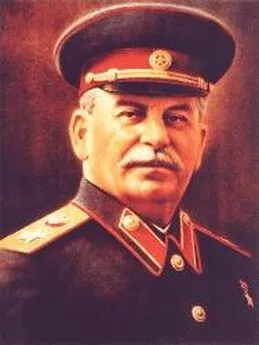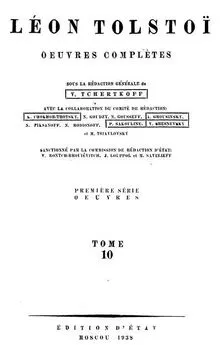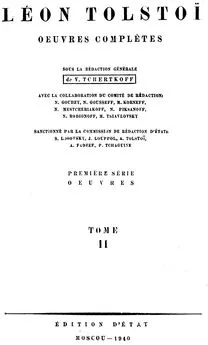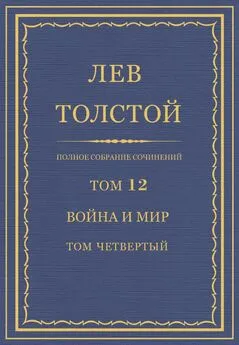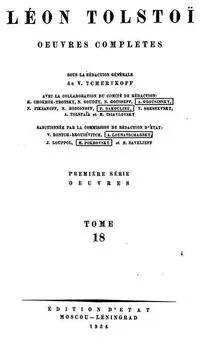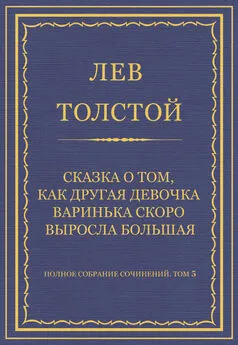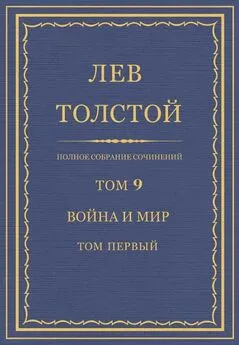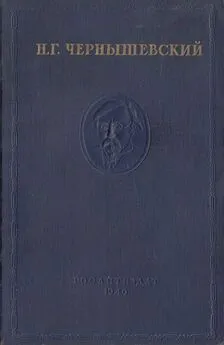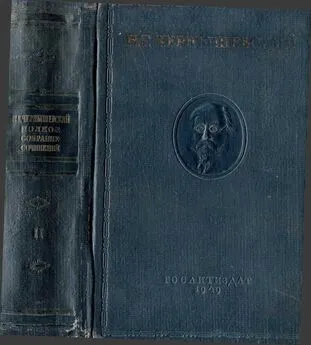Полное собрание сочинений. Том 68
- Название:Полное собрание сочинений. Том 68
- Автор:
- Жанр:
- Издательство:неизвестно
- Год:неизвестен
- ISBN:нет данных
- Рейтинг:
- Избранное:Добавить в избранное
-
Отзывы:
-
Ваша оценка:
Полное собрание сочинений. Том 68 краткое содержание
Полное собрание сочинений. Том 68 - читать онлайн бесплатно полную версию (весь текст целиком)
Интервал:
Закладка:
С совершенным уважением
Лев Толстой.
13 июля 1895.
Печатается по листам 78 и 76 копировальной книги.
Юлия Самуиловна Эйнарович — из г. Жемлославы Виленской губ. С Толстым знакома не была. Ответ на третье по счету письмо Эйнарович от 22 июня 1895 г. Первые два были от 1 и 17 мая. Во всех трех она просит Толстого помочь знакомому крестьянину переменить образ жизни.
1Вероятно, Толстой имел в виду писателя из крестьян С. Т. Семенова. См. т. 54, прим. 1018.
2 Переделано из: Личного же свидания с этим молодым человеком.
* 123. А. А. Бруни.
1895 г. Июля 14—26? Я. П.
Милостивая государыня
Анна Александровна,
Повесть ваша неестественна и потому не возбуждает ни интереса, ни сочувствия. Очень сожалею, что должен дать неблагоприятный отзыв.
Готовый к услугам Л. Толстой.
Рукопись возвращаю.
Печатается по листу 80 копировальной книги. Дата определяется тем, что письмо скопировано на одном листе с письмом к К. С. О., датированным 14—26 июля 1895 г.
Ответ на письмо Анны Александровны Бруни из имения Алексеевка, близ ст. Малая Витера б. Николаевской, ныне Октябрьской, ж. д. от 30 июня 1895 г., в котором она просила Толстого прочесть приложенную рукопись и прислать свой отзыв о ней.
* 124. К. С. О.
1895 г. Июля 14—26? Я. П.
Стихи ваши совсем не хороши, и я полагаю, что в вас нет никакой способности к сочинительству; поэтому советовал бы вам им не заниматься.
Лев Толстой.
Печатается по листу 80 копировальной книги. Дата определяется, с одной стороны, почтовым штемпелем получения: «Москва 13/VІІ 1895 г.» на конверте письма адресата, а с другой — местом в копировальной книге перед письмом к М. Ф. Кудрявцевой, датируемым предположительно 26 июля.
Ответ на письмо от 13 июля 1895 г., подписанное инициалами К. С. О.
* 125. С. А. Венгерову.
1895 г. Июля 26. Я. П.
Возвращаю коректуру. — От Бондарева я на днях получил письмо. 1Интересно бы поместить его автобиографию. Желаю вам всего хорошего.
Л. Толстой.
Дата определяется, с одной стороны, почтовым штемпелем получения на конверте письма адресата: «Тула, 7 июля 1895», а с другой — местом в копировальной книге — на одном листе с письмами к М. Ф. Кудрявцевой и к А. С. Зонову от 26? июля.
Ответ на письмо Венгерова от 3 июля 1895 г., при котором он прислал в двух экземплярах корректуру заметки Толстого о Бондареве. См. письмо № 67.
1Вероятно, Толстой имеет в виду письмо Бондарева к М. Л. и Т. Л. Толстым от 15 июля, на которое ответил ему письмом от 19—26 августа. См. письмо № 139.
* 126. A. C. Зонову.
1895 г. Июля 26? Я. П.
Я всегда очень рад вас видеть и всегда рад, если могу чем быть полезным. Боюсь только, что не буду в состоянии удовлетворить вашим желаниям.
Л. Т.
Печатается по листу 81 копировальной книги. Дата определяется тем, что письмо скопировано на одном листе с письмом к М. Ф. Кудрявцевой, предположительно датируемым 26 июля 1895 г.
Алексей Сергеевич Зонов (1870—1919) — служащий Московско-Казанской ж. д., сочувствовавший взглядам Толстого.
Ответ на письмо Зонова от 20 июля 1895 г., в котором он просил разрешения приехать на два или три дня в Ясную Поляну.
* 127. М. Ф. Кудрявцевой.
1895 г. Июля 26. Я. П.
Нынче получил ваше письмо и был очень рад узнать о вас и узнать всё хорошее. Маша не только не обижена вашим письмом, но очень благодарна вам за него. Мар[ья] Ал[ександровна] 1была нынче у нас и благодарит за память. Мы живем по-старому и помним вас.
Л. Толстой.
Печатается по листу 81 копировальной книги. Дата определяется словами: «Нынче получил ваше письмо» и почтовым штемпелем отправления письма адресата из станицы Кавказской: «23. VII. 5».
Ответ на письмо Кудрявцевой от 18 июля 1895 г.
1Мария Александровна Шмидт.
* 128. Александру Макдональду (Alexander Macdonald).
1895 г. Июля 26. Я. П.
Dear Sir.
You write that you wish me encouragement in my work. There is no more joyful encouragement for me, than the receiving of such letters as yours.
As for your questions, I will very gladly try to answer them as well as I can.
1) I have got nothing against the usual assembling of people confessing the Christian doctrine on Sundays in halls that they call churches. But I think, that these assemblies ought not to be devoted, as they usually are, to public and uniform public prayers, firstly, because the repetition on Sunday in the same words is perfectly useless, as it very soon becomes a mechanical procedure; secondly and chiefly, because in the Gospels this error is plainly pointed out and it is there definitely said (Math. VI), that one should not pray in public places, but in solitude, which is corroborated both by the reason and the experience of every man, who has ever sincerely prayed to God, as the assembly of people only distracts, makes one’s thoughts wander and diverts them. I think that Sunday rest and dedication of this day to spiritual exercise may take place in the most various forms. One may suggest, that men of the same spirit, meeting together on Sunday, should bring to their meeting such religious books or articles which they find in ancient and modern literature and read and discuss them together; one may suggest, that meeting together on Sunday men of the same spirit should arrange dinners for the poor and themselves serve those dinners; one may suggest, that meeting together men of the same spirit should confess their sins to each other and discuss them. In short one can think of a hundred different forms of worship, which should all have for their aim a mutual spiritual help and should not be mechanical, but sensible.
2) Do I believe in the resurrection and that there is a hereafter? I believe in true, i. e. indestructible life which Christ has disclosed to us and for the which death does not exist. But this life should in no-wise be understood as a resurrection to future life, as a hereafter. One cannot be too cautious in the use of terms for the definition of the true, indestructible, eternal life. If we were to say, that it will be a personal life, that we shall pass into other bodies or beings, as the Buddhists understand it in their metam-psychosis, we should be making a gratuitous assertion. If, on the other hand, we were to assert, that death destroys all that which composes our «ego», it would be a yet more gratuitous assertion altogether contrary to reason, for in our «ego», as in all which exists, there is a certain element, which is true and abiding. And if I accept as my «ego» this abiding element, it is evident, that that, which I consider as my «ego», will not be destroyed. The essence of Christ’s teaching consists precisely in the acceptance of this abiding and indestructible element as our «ego». The chief fallacy of our judgement about the state in which we will be after death proceeds from our not being able to renounce the conception of a separate personality and the ensuing therefrom conceptions of space and time. It is the proper to every individuality, that it cannot conceive itself otherwise, than in space and time. Whereas death destroys the personality and therefore destroys also the conditional conceptions of space and time, proper only to personality. And therefore when we ask: where shall we be after death? we wrongly put the question, for we are asking: in what space and time shall we be when there will be for us no space and time? The word «where» expresses a demand for fixing space; the word «shall» a demand for fixing time. And therefore Christ’s definition of life, expressed in the words: «I am the ressurrection and life», and «before Abraham was I am», not only is wiser and more elevated, but also much more accurately defines the true and therefore eternal life of man, than the teaching of the churches about the soul of man rising after death and going to purgatory, to heaven or to hell. According [to] Christ’s teaching, true life is and therefore cannot be infringed by death. Death destroys for us only space and time and therefore those bars, which in this life limited our personality. What will this state without space and time be we cannot imagine, but according to John, Christ says: «in my Father’s house are many mansions». And these «mansions», i. e. states other, than our own, without space and time, we cannot in this life represent to ourselves; but nevertheless [we] may be quite sure that they exist. From another point of view life cannot cease with the destruction of personality for the reason, that if in the universe there is an eternal element, which I know without myself as order and mutuality, within myself — as reason and love, this eternal element, if I take it as my «ego», cannot be destroyed by death.
3) You write: «You seem to condemn business or commerce and, in that case, if a man is so engaged, would you have him give up his business and live upon the land», which, you say, would be very pleasant, but often difficult and even impossible, especially for those who have a family. How to steer clear of the present network which surrounds us? That is the question. To steer clear of all the temptations of the world is impossible, because every one of us has got former ties and has learnt the truth after having had time to become entangled in the seductions of the world; and these temptations hinder each of us from doing that good which we regard as our duty; but the circumstance, that we cannot altogether liberate ourselves from the temptations of the world and cannot completely fulfil the good which we regard as our duty, does not prove, that man cannot fulfil the law of Christ and do God’s work. The law of Christ lies in one object — in fulfilling the will of the Father who sent us into the world. His will is, that men and beings should not be in mutual enmity, but should be united in love, «that they may be one even as we are one»... The only obstacle to this unity are the temptations of the world, and therefore for the attainment of this aim there is only one means: the destruction of those temptations, which separate men and all beings and leading them to enmity in the place of joy, which is proper to them, and love which is good for them. What then can we do for the destruction of those temptations? First of all — acknowledge, that deceit is deceit, — elucidate it so that all the falsity of deceit should become evident to ourselves and to everyone. And it is necessary to do so not only independently of the fact of one’s participating in it, but on the contrary with all the more energy, the more one participates in it. If I am caught in the net of deceit of state service, landownership, military service, or, as you say, commerce, — the first and chief thing, which I should do is not to conceal from myself the unlawfullness and sinfulness of my position; but on the contrary use all the power of my intellect in order to see it. And if such a man will bring the consciousness of the unlawfulness and sinfulness of his position to full lucidity, he will no more be able to continue the activity, which his conscience condemns. And if he be not able to continue it, he will either find means of leaving it («where there is a will, there is a way»), or, if he does not find the means, he will suffer and search for it and feel himself guilty. And this is the most advantageous state of mind for a christian.
Читать дальшеИнтервал:
Закладка:
